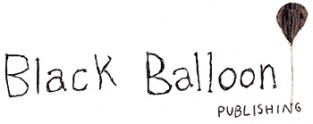Last week, the first annual Library of Congress Prize for American Fiction was awarded to Don DeLillo, the author of sixteen novels, including White Noise (Viking, 1985), Libra (Viking, 1988), and Underworld (Scribner, 1997) and, most recently, the short story collection The Angel Esmeralda (Scribner, 2011).
DeLillo, 76, was nominated by a panel of prize-winning authors and literary critics, and will receive the award at the Library of Congress National Book Festival in September. Among a lifetime of literary accolades, DeLillo has twice been nominated for a Pulitzer Prize—for Mao II (Viking, 1991) and Underworld—received a National Book Award and a National Book Critics Circle Award for White Noise, and was a finalist for last year’s Story Prize. In addition to his full-length works, DeLillo has also penned a number of plays, screenplays, short stories, and essays.
“Like Dostoyevsky, Don DeLillo probes deeply into the sociopolitical and moral life of his country,” Librarian of Congress James H. Billington said in the April 25 announcement. “Over a long and important career, he has inspired his readers with the diversity of his themes and the virtuosity of his prose.”
In a statement, DeLillo—a first generation Italian American born and raised in the Bronx—said, “When I received news of this award, my first thoughts were of my mother and father, who came to this country the hard way, as young people confronting a new language and culture. In a significant sense, the Library of Congress Prize is the culmination of their efforts and a tribute to their memory.”
The new prize is inspired by the Creative Achievement Award for fiction, previously given by the Library to Herman Wouk in 2008, John Grisham in 2009, Isabel Allende in 2010, Toni Morrison in 2011, and Philip Roth in 2012. The Prize for American Fiction will, according to the announcement, be given annually "to honor an American writer whose body of work is distinguished not only for its mastery of the art but for its originality of thought and imagination. The award seeks to commend strong, unique, enduring voices that—throughout long, consistently accomplished careers—have told us something about the American experience.”
DeLillo, who often admits that his long career took some time to get started, is currently at work on a novel.





